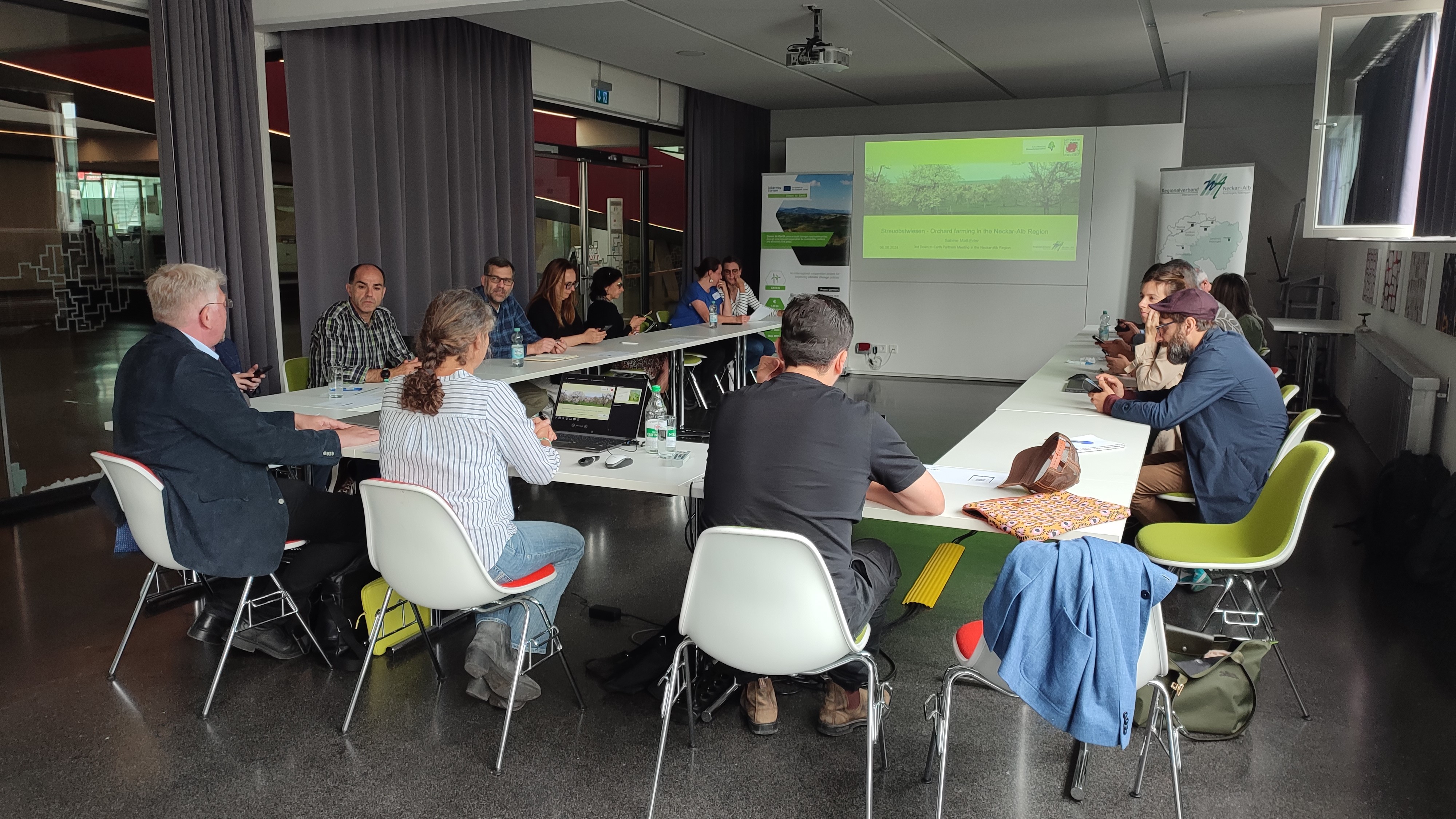Study Visit in Neckar-Alb, Germany
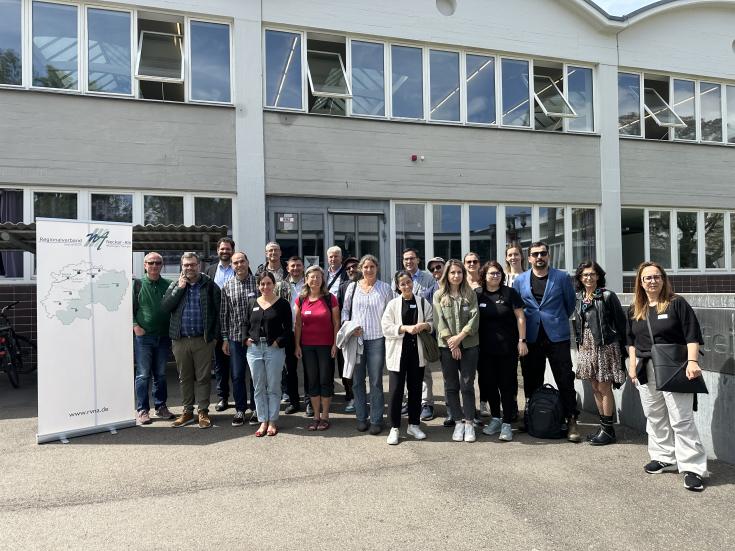
From 4th to 6th June 2024, Down to Earth partners were in the German region of Neckar-Alb for the third Study Visit of the project.
The visit was organised by project partner the Regionalverband Neckar-Alb, and explored how climate change is addressed in the area, with a specific focus on the challenges related to the topic of Year 2, access barriers to young farmers Down to Partner partners came with a number of stakeholders from their region to broaden the exchange of experience.
Day 1: Management meetings and general presentation of the region
Beyond the general project management discussions, project partners took the opportunity to learn from one another and better transfer the knowledge garnered from the project into their own policy making practices. Partners presented their respective Policy Instruments, emphasizing learnings from identified good practices and study visits.
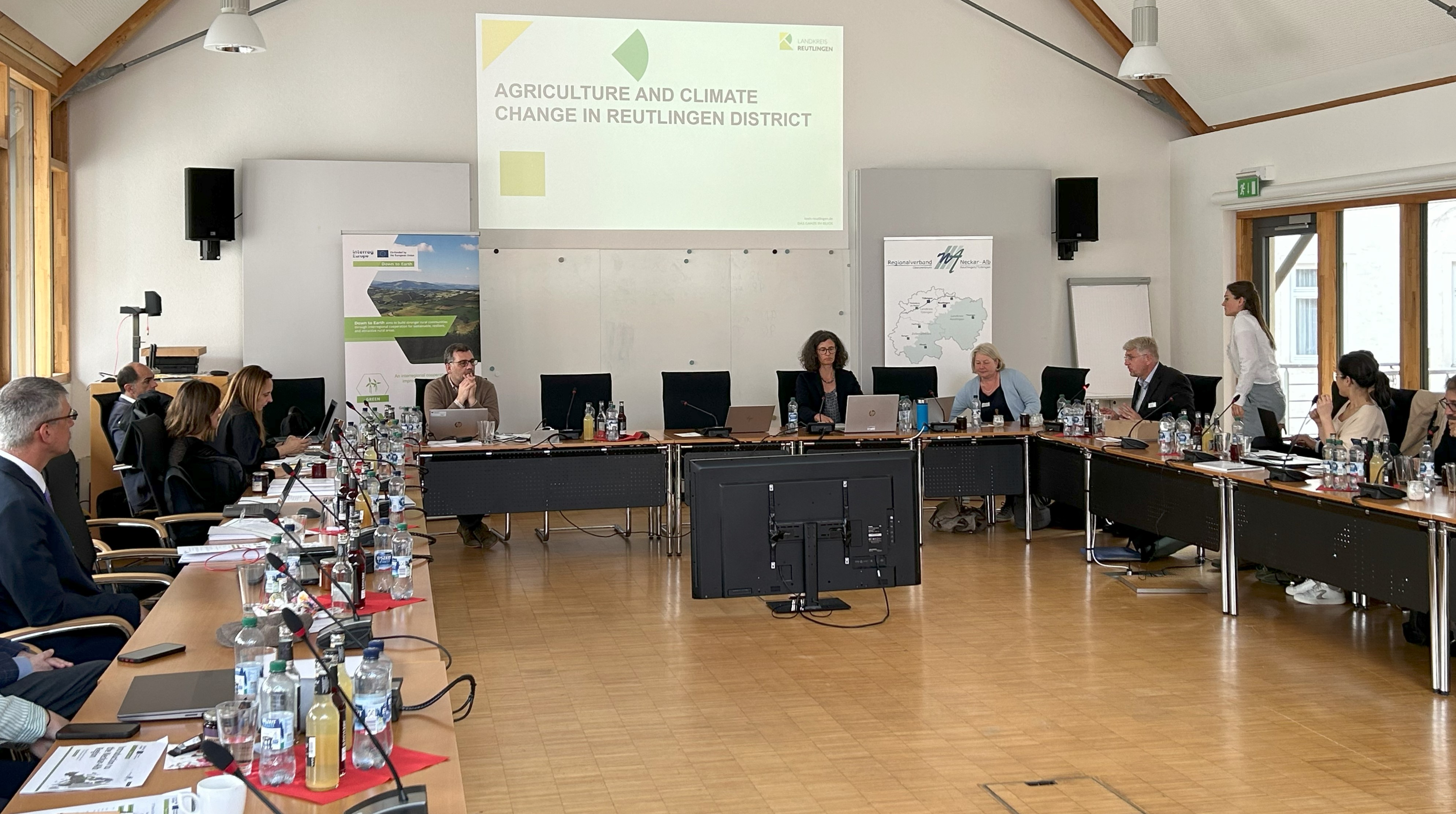
For instance, Galician partners explained that insights the development of guidelines and requirements for revitalizing rural areas, aiming to boost local agricultural productivity and sustainability by will be directly informed by learnings from Down to Earth thematic report from Year 1 and successful case studies discovered during the first two study visits.
Representatives from the Neckar-Alb region also discussed how their Regional Plan will be improved based on lessons from other good practices (GPs) and study visits. The Plan will indeed by refined in an upcoming review cycle, incorporating innovative strategies and solutions observed in other regions.
These presentations underscored the importance of cross-regional collaboration and knowledge exchange in addressing agricultural and environmental challenges.
In the afternoon, Mayor Elmar Rebmann of Bad Urach welcomed participants with a speech emphasizing the EU’s motto, “united in diversity.” He stressed the importance of pooling expertise and experiences from different regions to tackle climate change collectively. Highlighting urban public transport as a crucial element in reducing fossil fuel consumption, he mentioned the ongoing city rail project aimed at connecting cities within the region.
Dirk Seidemann, director from the Regionalverband Neckar-Alb presented an overview of the region’s current projects, focusing on the energy transition and the challenges posed by public acceptance and military planning. Dr. Renate Kostrewa and Elke Weidinger from the Reutlingen District Agricultural Office provided an in-depth analysis of regional climate change phenomena. They highlighted the rapid increase in mean annual temperatures, shifts in precipitation patterns, and the growing frequency of droughts and heavy precipitation events.
The first day concluded with a guided walking tour of Bad Urach.
Day 2: UNESCO Biosphere Reserve and good practices
The second day of began at the Biosphere Center Swabian Alb in Münsingen, where a series of presentations and site visits showcased sustainable energy initiatives, community-driven projects, and innovative agricultural practices.
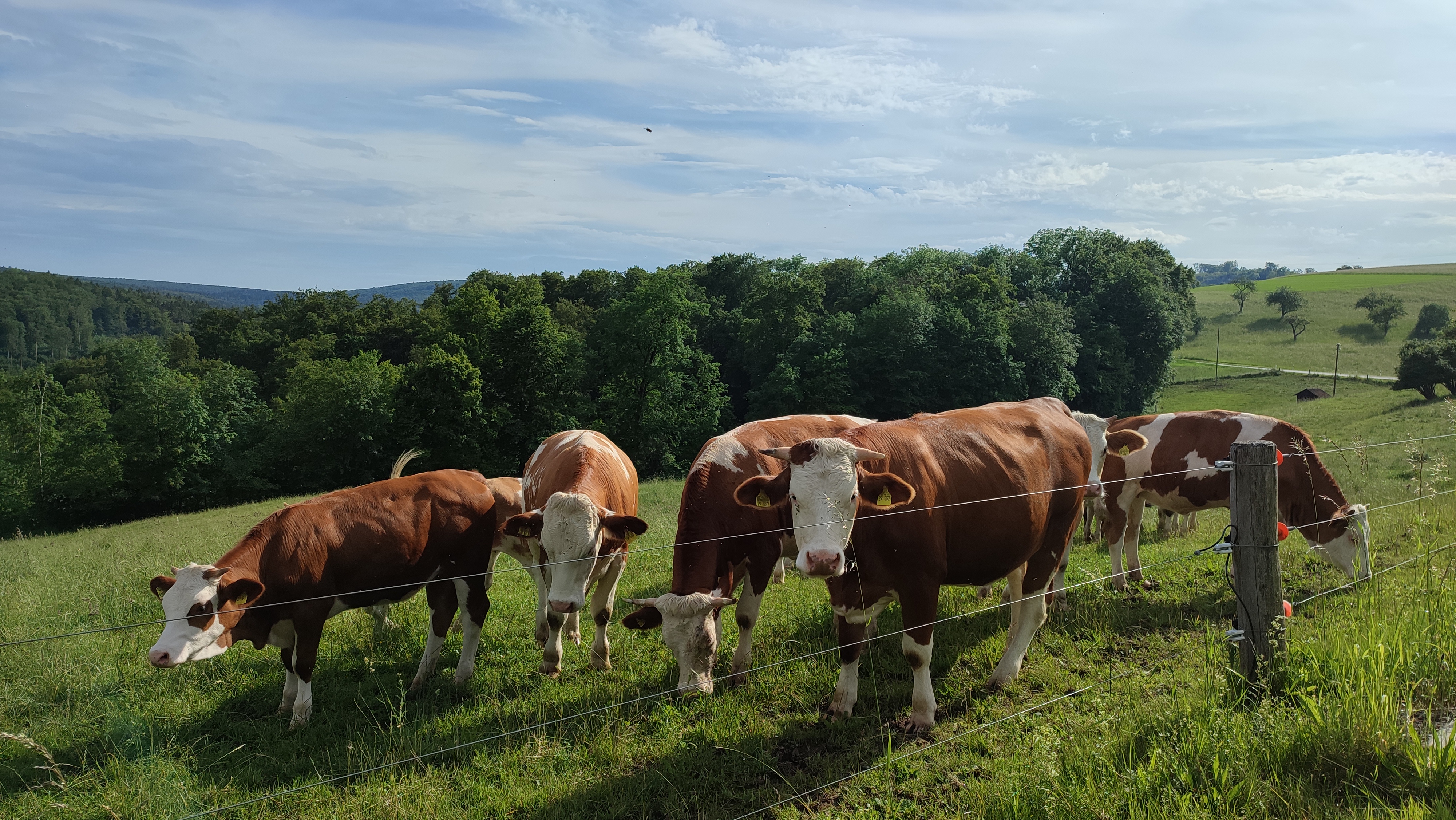
First, a representative from the Tourism Information office highlighted the region's efforts in promoting sustainable energy. Over recent years, the focus has been on developing e-bikes and charging infrastructure, with the aim of transitioning to bicycles within the biosphere area.
Rainer Striebel presented an overview of the UNESCO Biosphere Reserve Area Swabian Alb, which promotes sustainable regional development by involving various stakeholders, including municipalities, small industries, tourism operators, farmers, and educational institutions.
Hannes Bartholl, Regional Manager of LEADER Mittlere Alb, underscored the importance of citizen involvement in regional development. "The bottom-up approach is the heart of the program," he stated, highlighting that citizens are best positioned to make decisions for their areas.
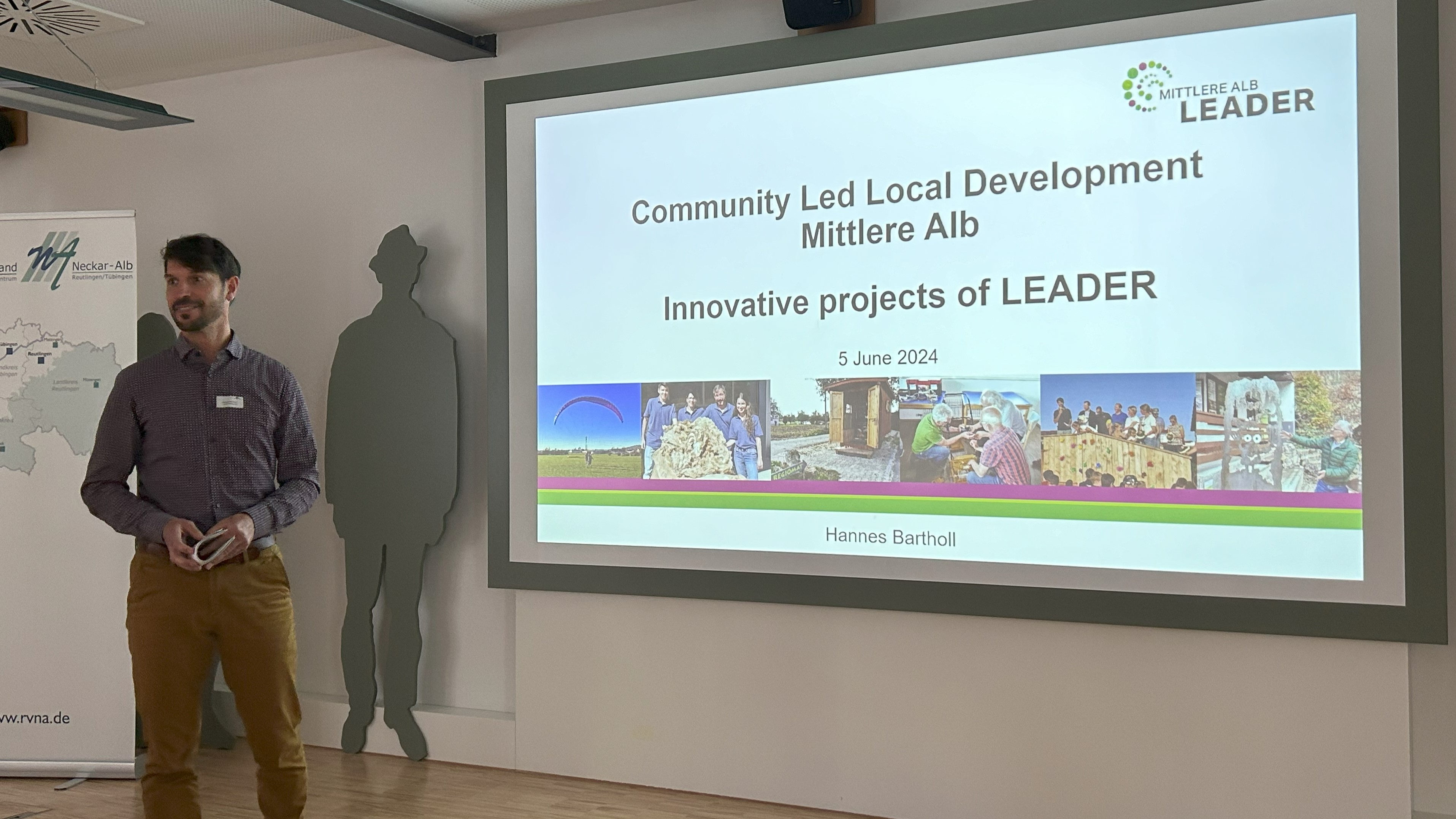
Participants visited several exemplary projects in Gomadingen, including Bakery Glocker and Tante-M-Store.
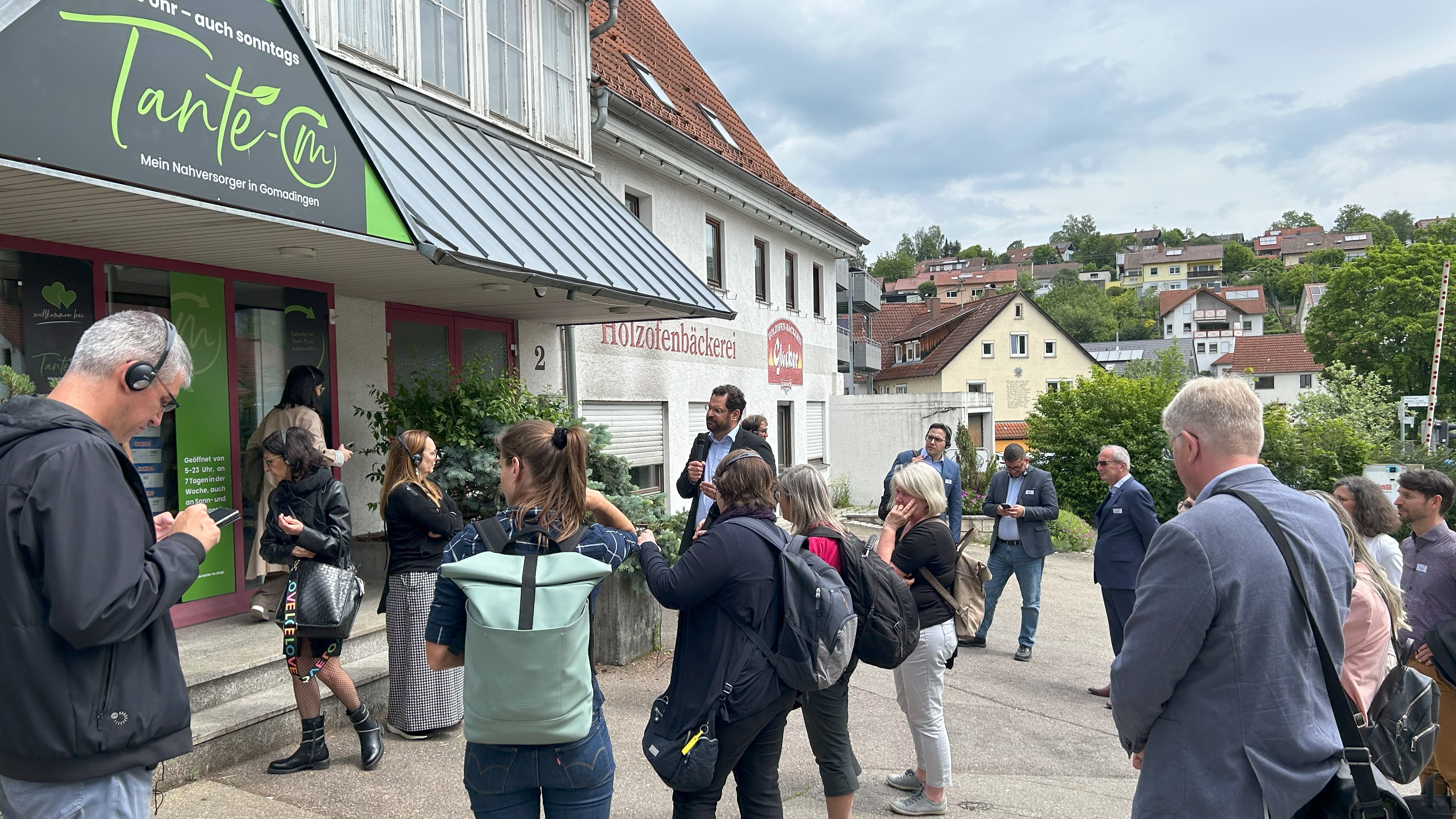
In Pfronstetten, the focus was on renewable energy and innovative agricultural practices, with Mayor Teufel presenting the Regenerative Local Heating Network and Biogas Plant, emphasizing the integration of electrical and thermal energy production through biogas.
The day concluded with visits to two farms, showcasing different approaches to agriculture. Farm “Münch” and Farm “Müller” highlighted the contrast between traditional and modern farming techniques.
Day 3: Climate change and farming practices
Back in Mössingen, the final day focused on the effects of climate change on orchard farming, with a short visit to one of the orchards sites.
